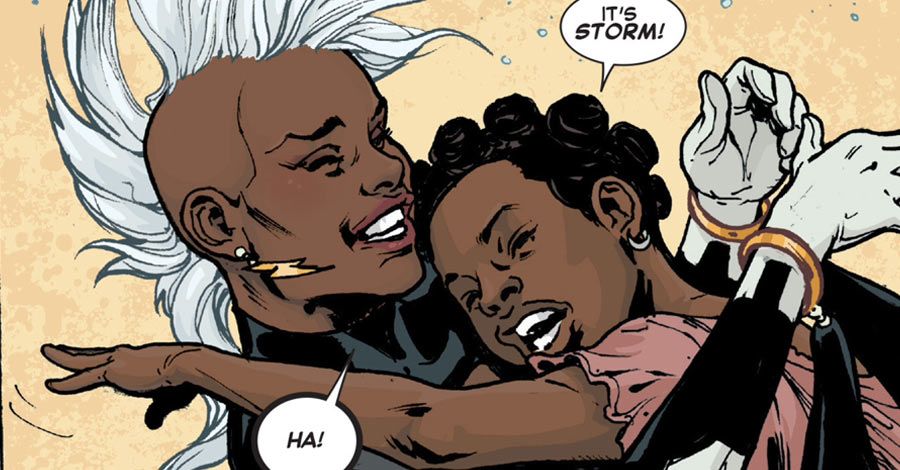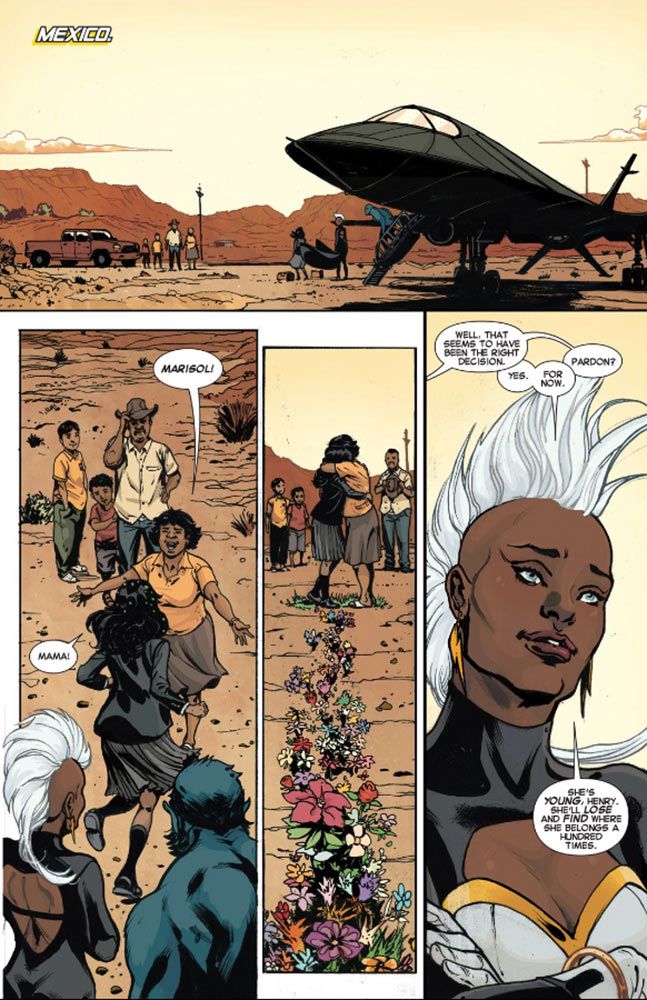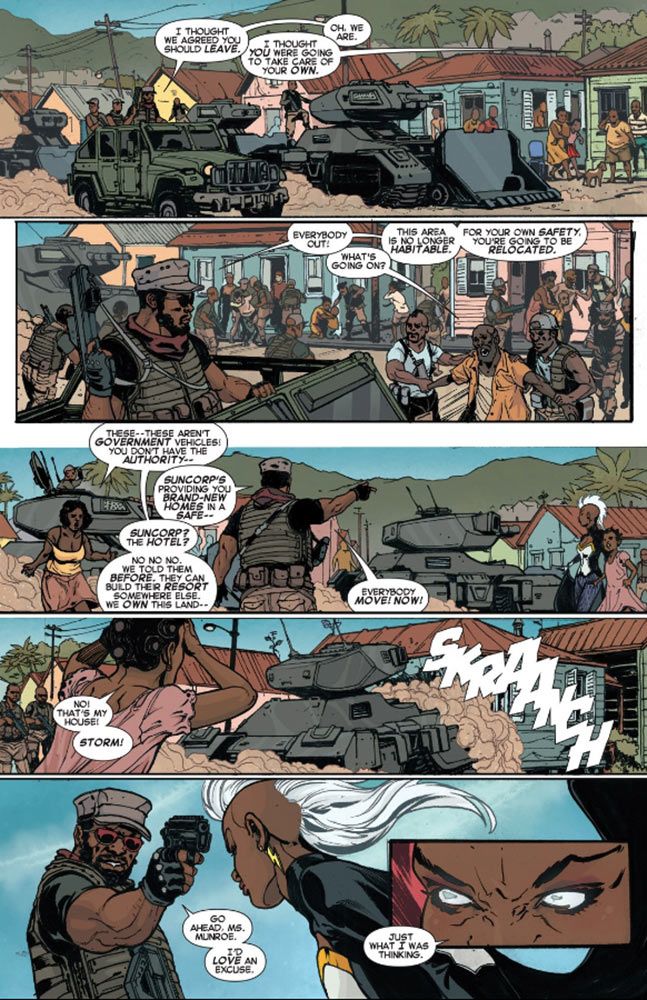I don't even know where to begin, you know? The past week has been so full of emotionally draining and downright devastating headlines that I can't even figure out the right metaphor to properly convey the high levels of suckitude August 2014 is bringing into our lives. As a full-time freelancer, fully rockin' that glamorous "doesn't leave the house for days at a time" lifestyle, I watch the news every evening. Yeah, the local and national news, because I apparently like kicking off my evenings with a two-hour block showcasing nothing but human horrors from across the globe. I do it every night, because for some reason I decide that my own personal miseries aren't enough for me to deal with. This week hasn't been great. This month hasn't been great. This year hasn't been great.
This past week has been especially rough. I'm a comedian, and my boyfriend is from just outside Ferguson, Missouri. We've both dealt with depression, both in our own lives and in the lives of our families. We're both compassionate human beings, as I assume all of y'all are, too. So, yes -- this past week has been rough. I can't go a minute on the Internet without seeing images of the needlessly war-torn streets of Ferguson, or the now-silenced face of Robin Williams. Both of these stories have punched me in the face, heart, gut -- all the punchable places.
To me, Williams' suicide just -- I can't even think about it. The man -- and I know a lot of people will relate to this -- feels like part of my family. No one has made my dad laugh harder than Robin Williams, and seeing his movies in the theater -- yes, even "Jack" and "Bicentennial Man" -- was a thing I shared with my father throughout most of my childhood and adolescence. Then there's the fact that my dad looks like a slightly skinnier Robin Williams; I swear, they have the same eyes, nose and smile. I can't see a picture of Robin without seeing my dad. It feels familial, and the loss hurts.
The loss also hurts because it's gotten us to talk about depression, suicide and the hurtful and useless shame associated with those two things. I'm glad that so many people are opening up about their struggles with inner pain and their temptations to permanently end it. We can only heal if we talk about this stuff and strip it of the negative stigma. Those feelings are shockingly normal, and they're shockingly normal for the comedians I call my closest and dearest friends. I can't see Robin Williams' face without worrying that one day -- one day it'll be someone I know.
I -- I seriously shouldn't even have to get into why Michael Brown's killing -- the death of an unarmed teenager by an incredibly-armed police officer -- upsets me. I shouldn't have to get into it because it should upset you, too. We're not just comic book fans, we're super hero fans. You can't tell me there is a single super hero that would support an unarmed teenager being shot multiple times and then left in the street for hours. It's sickening. It's disgusting. It's not changing. Brown's parents have called for peace. Ferguson residents are rising early in the morning to take their children to looted storefronts to help clean up the damage. Unarmed adults are being greeted with police in riot gear and tear gas. There is nothing to be happy about right now.
So where do comics come into play? I logically have no idea. I know they don't come into play, not in any real, immediate or helpful way. I only know -- I only know that both of these recent incidents have had me going back, again and again, to last month's "Storm" #1. I know I come from an incredible amount of privilege that I can retreat from the very visceral and real pain I'm seeing on the news and hide in the digital pages of a comic book. The older I become, the worse our world seems to get, the more I've started craving meaning in the super hero books I read. I'm fine with reading a little bit of mindless fun and cleverly crafted action, but I also firmly believe that we need super heroes now to show us the way. I need my heroes to be better than what we have in the real world. "Storm" #1 -- by Greg Pak, Victor Ibanez, Ruth Redmond, Cory Petit, and Daniel Ketchum -- gives me that. It gives me hope.
It gives me hope because it depicts Storm exactly as the type of hero that we need in the world right now. She's compassionate, strong and forsakes her own safety and status quo in order to do what is morally just. She helps people. Her first issue wasn't about saving the world from a threat so large that it blows her heroism out past our scope of recognition. It was about saving a village from a harmful militaristic threat, and it was about saving one angry and depressed student.
When confronted with Marisol's anger at her living situation at the Jean Grey School, Storm immediately goes on the defensive. The young girl, who has turned her derogatory nickname, Creep, into her codename, misses her family and has lashed out, using her mutant power to turn the dining hall into a swamp. She needs help, and Storm initially only offers her an off-the-cuff version of the Jean Grey School's slogan to calm her down. She's not listening. By the end of the issue, though, Storm does listen, and she gives Creep the one thing she asked for -- the ability to go home. Storm realizes that she can't control young Marisol's emotions the way she does the weather, and she instead gives her what she really needs -- kindness and understanding.
The action plot of the issue focuses on the beleaguered village of Santo Marco as the locals deal with a barrage of cyclones and the destructive power of a militia group. In this story, Storm becomes exactly what Marvel Comics -- and all of fiction -- needs. She's an A-List hero with enough power to go toe-to-toe with the heaviest heroes ever created -- and she's a woman of color. Storm's secret power, the one she wields alongside her cyclone-dispersing abilities, is her power to inspire. Any privilege she enjoys as a fictional character in the Marvel Universe comes from her own willpower and determination. She's not a man, she's not white, she's not a Christian, and she's not culturally American. Depending on your own headcanon and how much you're willing to read into Chris Claremont's writing, she's not even straight. She's had nothing handed to her, yet she's a goddess, a headmistress, the leader of the X-Men, an Avenger, a queen. She's amazing. Because of her unflinching and unwavering triumph over every obstacle she's experienced as a member of numerous minority groups, Storm has the power to inspire everyone.
Writer Greg Pak pushes that to the forefront in the very first issue, in the very first few pages. I cannot tell you how many times I've thought about page five of the debut issue, the page where Storm takes a photo with an incredibly overjoyed little girl from the village -- a little girl that laughs in the face of an army of cyclones just because she knows Storm is right there, protecting her. That's the real power of Storm.
When the militia arrives later in the issue with their tanks and automatic weapons, Storm again does not back down -- and we get to see another side of her. We get to see the Storm that grew up as a pickpocket on the streets of Cairo, and the Storm that fought Callisto to the death for the lives of her teammates, and the Storm that bested Cyclops in one-on-one combat while she was powerless. She doesn't care that the X-Men can't officially get involved in the atrocities being committed in Santo Marco because of political red tape. She acts with nothing but fierce compassion in her heart. She does what needs to be done, and she defiantly stands atop an overturned tank after she does it.
What I'm getting at, I guess, is that this is the exact type of story -- and Storm's the exact type of hero -- we need in order to progress as a society. That's big praise, but I firmly believe that a generation raised on stories where characters as diverse and nuanced and strong as Storm are given the spotlight will know true compassion and understanding for each other. It starts young, and if our fictional stories present realities where female super heroes can inspire and people of color are given the inherent respect that all people deserve, the next generation will work to make our reality match. Don't give them the same old problematic tropes that we've seen before to emulate. I want to see fiction that inspires and instills hope and awe in its audience. "Storm" #1 did that for me, and it reminded me how powerful comics can be. I'll keep this issue close every time I watch the evening news.
Brett White is a comedian living in New York City. He co-hosts Matt & Brett Love Comics, writes for the sketch comedy podcast Left Handed Radio, and makes videos for the Upright Citizens Brigade as a member of UCB1. His opinions can be consumed in bite-sized morsels on Twitter (@brettwhite).



